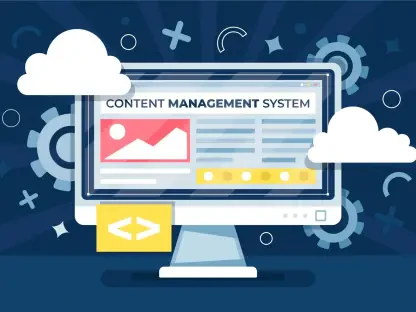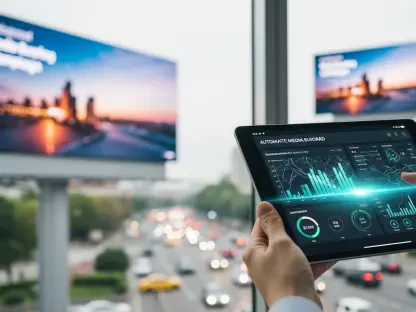Digital marketing is evolving at lightning speed, making it imperative for businesses to stay ahead of the curve to capture and maintain their audience’s attention. The year 2025 marks a pivotal moment where the convergence of technology, consumer behavior, and innovative strategies will reshape how brands interact with their audiences. This article explores key trends set to dominate the digital marketing landscape, offering insights on how companies can prepare for and leverage these developments to their advantage.
The Rise of Employee-Generated Content
Authentic Voices Over Corporate Messaging
In the current climate, authenticity has become the backbone of successful digital marketing strategies. Traditional corporate messaging is giving way to employee-generated content (EGC), which promises to humanize brands and enhance their credibility. Customers today crave genuine interactions and trust recommendations from individuals over faceless entities. By leveraging their workforce as brand advocates, companies can showcase authenticity and foster deeper connections with their target audience. This shift towards EGC is not merely a trend but a necessity for engaging a discerning and digitally-savvy consumer base.
Strategies to Harness EGC
Effective strategies to harness EGC involve empowering employees to share their work experiences, company culture, and industry expertise on social media platforms. Encouraging such authentic content creation not only boosts engagement but also helps in building a relatable brand image. Additionally, showcasing behind-the-scenes content that reflects the brand’s core values and mission can significantly enhance audience trust. Featuring employees in testimonial videos, blog contributions, and product demonstrations can further cement their role as genuine brand advocates. By actively involving employees in these marketing efforts, brands can achieve higher engagement rates and foster stronger loyalty among their customers.
Evolution of Social Media
AI-Powered Content Creation
The social media landscape is undergoing a significant transformation with the increasing integration of AI-powered content creation and automated engagement tools. These advancements enable brands to create personalized content tailored to various audience segments, enhancing relevance and engagement. AI-generated content is becoming a game-changer, allowing marketers to efficiently cater to the diverse preferences of their audience. This technological evolution is critical for brands aiming to stay afloat in a competitive market where consumer attention spans are dwindling. By leveraging AI, businesses can ensure their content resonates more deeply with their target demographic, fostering more meaningful interactions.
Shift from Search Engines to Social Platforms
There is also a notable shift in how users discover products and services, with social platforms like TikTok and Instagram gradually supplanting traditional search engines like Google. This trend highlights the growing influence of visual and interactive content in consumer decision-making processes. The rise of private and community-based social media groups is fostering more intimate and authentic interactions, further influencing consumer behavior. For brands, this shift necessitates a robust presence on these platforms and an investment in creating engaging, social-first content. By adapting to these changes, businesses can maintain visibility and relevance in an increasingly social-driven digital landscape.
Advanced Search Marketing
Conversational and AI-Driven SEO
The advent of AI-powered search engines, such as Google’s Search Generative Experience (SGE), is ushering in a new era of search marketing. In this evolving landscape, optimization practices are shifting towards long-tail, natural language queries, aligning with the conversational interactions that users have with AI assistants. Voice search optimization is becoming essential as more users rely on virtual assistants for information retrieval. These shifts necessitate a focus on creating content that is not only rich in keywords but also conversational and contextually relevant. Brands must adapt to these changes by enhancing their content strategies to cater to the AI-driven search algorithms and user preferences.
Zero-Click Searches
The rise of featured snippets and AI-generated summaries is changing the dynamics of organic traffic, leading to an increase in zero-click searches. This means that users often find the information they need directly on the search engine results page without clicking through to a website. Consequently, brands need to deliver valuable, in-depth content that can capture user attention in these snippets. Optimizing for zero-click searches involves structuring content to address customer queries concisely and effectively within the search results. By doing so, brands can still drive engagement and visibility even as traditional metrics of clicks and site visits evolve.
Customer Collaboration and Co-Creation
Engaging Customers in Content Creation
Consumers today seek deeper involvement with brands and desire more meaningful interactions, prompting businesses to adopt customer collaboration and co-creation strategies. By leveraging user-generated content (UGC) in social media and advertising, brands can tap into the authentic voices of their customers. UGC not only enhances engagement but also builds trust, as content created by real users is often perceived as more credible. Encouraging customers to share their reviews, testimonials, and creative content helps create a sense of community and belonging around the brand. This collaborative approach ensures that the brand narrative is shaped by genuine consumer experiences, fostering stronger loyalty.
Co-Branded Campaigns
Launching co-branded campaigns that involve customer input in branding decisions is another effective strategy for fostering customer collaboration. Such initiatives encourage two-way conversations, making customers feel valued and heard. By incorporating customer feedback and ideas into marketing efforts, brands can create more resonant and impactful campaigns. These collaborative efforts also enhance brand visibility and reach, as customers are likely to share and promote the content they helped create. Establishing these two-way relationships ensures that marketing campaigns align more closely with customer expectations and preferences, leading to stronger and more enduring brand loyalty.
AI-Powered Marketing
Enhancing Customer Service and Content Creation
AI is revolutionizing marketing by enabling businesses to personalize customer experiences more efficiently and at scale. AI-driven chatbots and virtual assistants are playing a significant role in enhancing customer service by providing instant and accurate responses to inquiries. These tools are improving customer satisfaction and retention by ensuring that interactions are seamless and efficient. Furthermore, automated content creation tools are streamlining the production process for various marketing materials, such as blog posts, social media captions, and ad copy. By leveraging AI, marketers can deliver consistent and high-quality content, freeing up time to focus on creative and strategic aspects of their campaigns.
Predictive Analytics
Predictive analytics is another area where AI is making a profound impact, offering deeper insights into consumer behavior and preferences. By analyzing vast amounts of data, AI-driven predictive models can help brands anticipate future needs and trends, allowing for more proactive marketing strategies. These insights enable marketers to tailor their campaigns more precisely, ensuring that their efforts resonate with their target audience. Predictive analytics also aids in optimizing resource allocation, as brands can identify the most promising opportunities and focus their efforts accordingly. By integrating AI into their marketing strategies, businesses can achieve greater efficiency and effectiveness in their campaigns.
Privacy-First Marketing and Immersive Experiences
First-Party Data Collection
As privacy regulations become stricter and third-party cookies are phased out, brands need to prioritize first-party data collection to maintain robust customer insights. Encouraging users to opt-in to newsletters, exclusive offers, and loyalty programs can help in gathering valuable first-party data. Investing in CRM systems to manage and ethically utilize this data is essential for building trust and ensuring compliance with privacy regulations. Brands must be transparent about their data practices and provide value-driven content that motivates customers to share their information willingly. By focusing on first-party data, businesses can enhance their marketing strategies while respecting consumer privacy.
Interactive and Engaging Content
In response to the growing consumer demand for interactive and immersive experiences, brands are increasingly incorporating augmented reality (AR), virtual reality (VR), and other interactive content into their marketing strategies. Virtual try-on experiences, for instance, are becoming popular among eCommerce brands, allowing customers to visualize products before making a purchase. Gamification elements, such as quizzes, challenges, and interactive polls, are also being integrated into marketing campaigns to engage audiences in a fun and interactive manner. Additionally, AI-driven personalization in video and email marketing is enabling brands to create more engaging and relevant content. These immersive experiences are helping businesses capture and retain audience attention in a competitive digital marketplace.
Preparing for the Future
The digital marketing landscape is evolving at a breakneck pace, making it crucial for businesses to stay ahead to capture and maintain their audience’s attention. The year 2025 signifies a turning point where the fusion of technology, consumer behavior, and innovative strategies will revolutionize how brands connect with their audiences. This article delves into the key trends set to dominate the digital marketing sphere, providing valuable insights on how businesses can gear up for these changes and make the most of new opportunities. Companies need to be agile, adapting their strategies to leverage these shifts effectively. As technology continues to advance and consumer preferences shift, businesses must emphasize creating personalized experiences, utilizing artificial intelligence, and harnessing the power of data analytics to enhance their marketing efforts. By staying informed and proactive, businesses can navigate the evolving digital marketing landscape and maintain a competitive edge in a fast-changing world.








